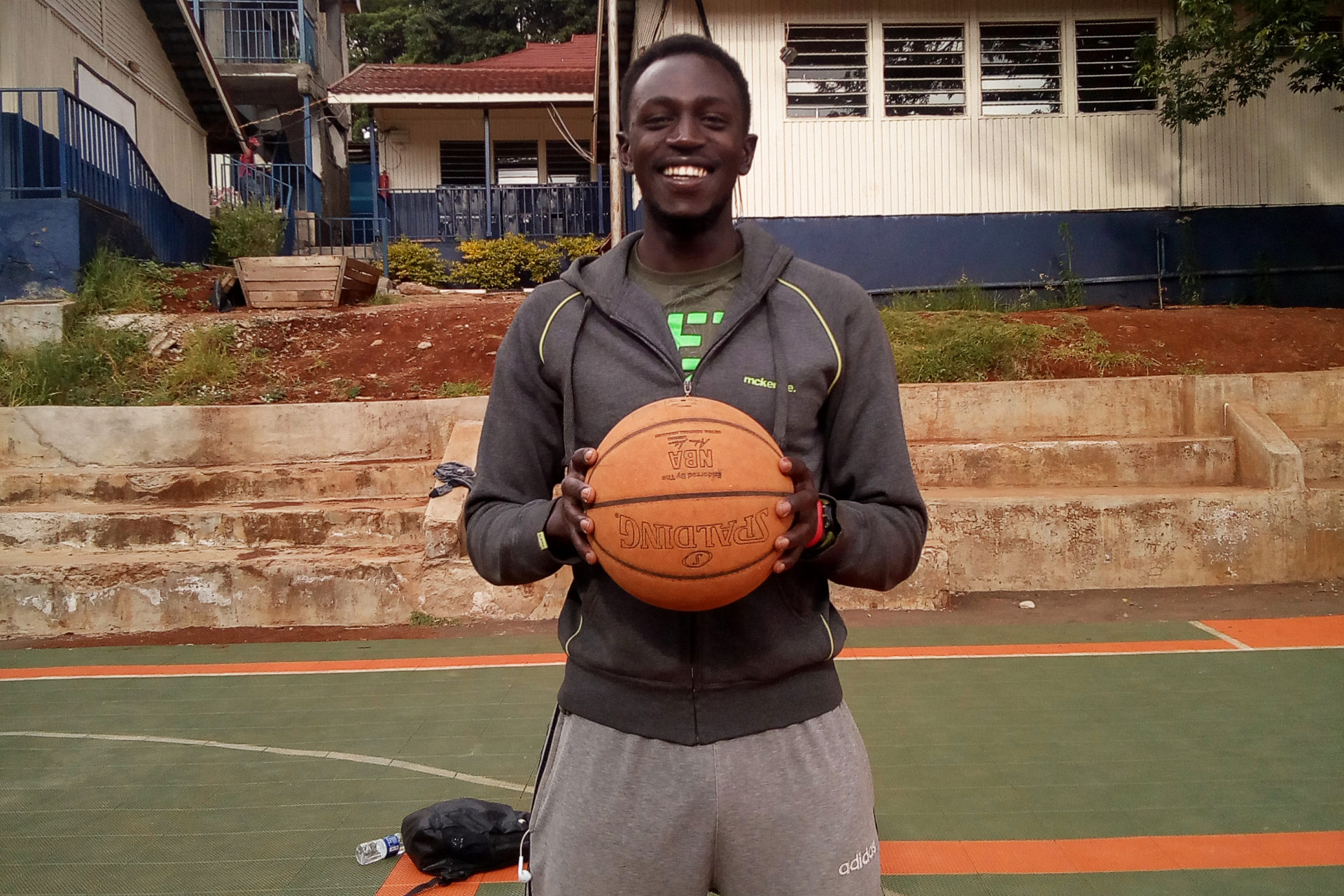Zack Okong’o is 23 years old. He is a qualified sports trainer and a successful basketball player. He is a coach for emPower my life!. In this interview, Zack explains how he uses sport and play to teach children things that go well beyond sport.
Zack, the third and most recent emPower my life! camp is over. How was it?
The children joined in very actively and worked together. Particularly at the last camp, I really noticed how they open up. They had discussions and confidently expressed their ideas. It was a positive experience.
So you would say that there has been a development over the three camps?
Yes, we were able to ensure continuity regarding participants. That made for a good dynamic. First and foremost, the children like coming to emPower my life! to play. And it isn’t a given that they get regular food. But this time I noticed a change. The older children in particular noticed that they were learning something worthwhile. They thought it was fun.
emPower my life! explains to children what sexual violence is and how they can protect themselves and others from it. How do you use sport and play to deal with such a serious topic?
It isn’t easy. Children that age just like to move. Sometimes they are too boisterous, jumping around. It is a challenge to capture their attention.
So you need clever tricks?
Exactly. It is very important to involve the children and not to give orders. The nice thing is that if you approach something energetically and enthusiastically, then they join in. Sport and play is effective because the children really get involved. Through games, I can create situations where the children find out first-hand what stigma is like, for example.
How exactly does that work?
A game that we often use is “Huddle together”. It is in the handbook. (Ed’s note: Each child gets a symbol on their forehead, but they don’t know what it is. It might be a mango, an orange or another piece of fruit, but it could be “HIV+”. On a signal, the children need to get into a particular sized group, but not with children who are marked as “HIV+”.) After the game, I ask the children how it felt to be “HIV+”. And they say, “Oh, it was terrible! I felt excluded.” That way the children don’t just learn intellectually what stigma is, but they also feel it. Games like that always lead to good discussion. They are key moments, when the children suddenly make the connection with experiences in their daily lives.
When the topic is sexual violence, gender and gender roles are an important subject. How do you talk about things like that? And how do you ensure that boys and girls play together?
To be honest, that is one of the most difficult things in the camp. And I wouldn’t say that I was 100% successful. It is hard to break down the barrier and to encourage boys and girls to play together without reservation. I start by saying that all children are equal at camp. And that everyone joins in and plays with everyone. I explain that they can only benefit from the games and really learn if they work together. We play gender-specific games too. They make the children question gender roles in society. They start to understand that they can do everything regardless of their gender. Something else that worked really well: just letting the children play with minimal instructions, just so nobody gets teased or hurt. I just let them be children. That creates a group dynamic. They get to know each other and learn names. When they interact, the communicate better with each other. That helps.
Have you got other principles or guidelines that guide you in your work as a coach?
One of the most important things for me is being an example to the children. I want to show them that they can trust me. If they can count on me then things like fair play are natural, and I can talk to them about things like gender roles.
If you think back over the year, and the three camps, what are your lasting impressions?
After the last camp, the mother of a participant came to me. Her daughter had told her that someone had sexually harassed her. The mother came to me because she was grateful. She noticed that it was thanks to the camp that her daughter had realised that she was the victim of abuse. That is a fundamental problem. The children don’t know the limits. They can’t tell if someone is invading their personal space. They can’t put a name to sexual violence. That opened my eyes. I realised how worthwhile the work of emPower my life! is.
Have you led many sport and play-based camps?
As a sports trainer, I have already led lots of camps, but emPower my life! is the first time I have taught in this way. It was fun for me too. I realised that sport is very appropriate for teaching things that go beyond sport. And I looked at the topics differently too. I am really pleased that I could be a part of emPower my life!.
Nadia Lanfranchi interviewed Zack Okong’o.

